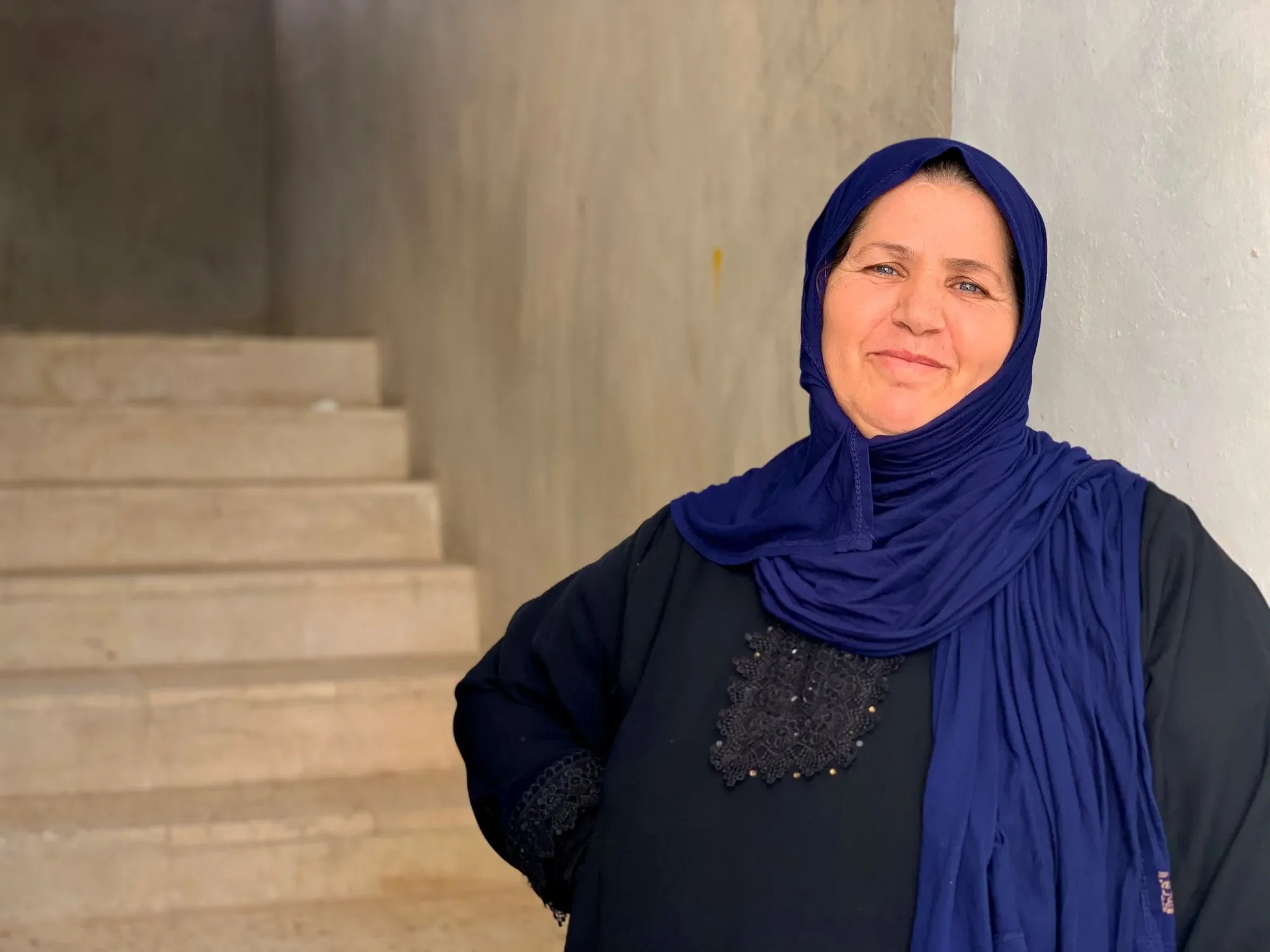When we first came to Jordan six years ago, we were able to afford living here and manage our expenses. We paid rent and utility bills and had enough money to buy what we needed. But as a refugee family for several years, our resources have been depleted. We spent so much in the first year because we did not know the country well – it was challenging to adapt, especially with the change between the two currencies. I cannot read or write so that was particularly difficult for me. We had some gold with us that we sold to survive. We even sold land that we owned in Syria just to have some money, and we spent it all.
Two years ago, my husband was diagnosed with orthopedic cancer. We had to take him to the hospital in Amman every day, about 54 miles away. Between transportation and hospital fees, we paid more than $200 every day. We tried to rent an apartment in Amman, but it was too expensive, so daily commutes were our only solution. My husband passed away a few months after he was first diagnosed.
My granddaughter, Sham, fell out of a window on the second floor, when she was four years old. It took her a year to fully recover through surgeries and checkups.
Faisal managed to find some work in construction during the first few years we were here. Over the last two years, finding work has become more difficult. Both work opportunities and humanitarian assistance have declined. We have been struggling to pay rent and our debt is growing. We have been unable to pay our utility bills for the last eight months. We receive food coupons for about $20 per person from the United Nations World Food Programme, and we have received cash assistance from CARE.
Now, the olive harvest season is approaching, so we will help some of the landowners harvest their olive trees to make some money, in the hope that this will help cover some of our expenses.
My son Faisal wishes for his children to grow up well and healthy, and for all of us to stay well, but he does not wish to return to Syria. Although some sources say that the situation is getting better, it is hard to believe. Some men are being drafted into the army, while others are disappearing. Any male who returns to Syria may be taken for military service. We wish we could return and be safe. If everything in Syria changes, we will return. Syria was the best country in the world for us! Nothing can make up for our homeland.
As told to Mahmoud Shabeeb, CARE Humanitarian Communications Manager

